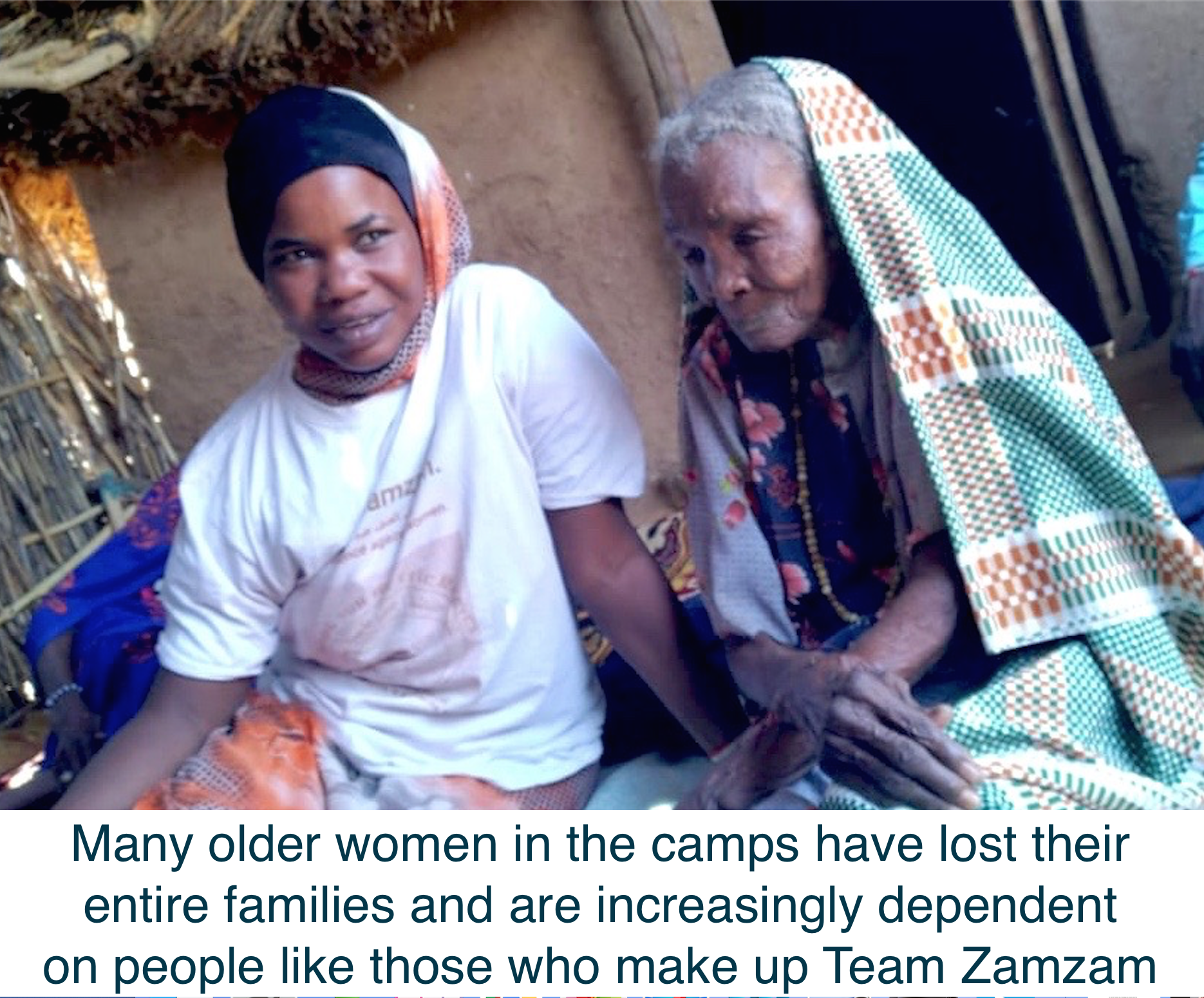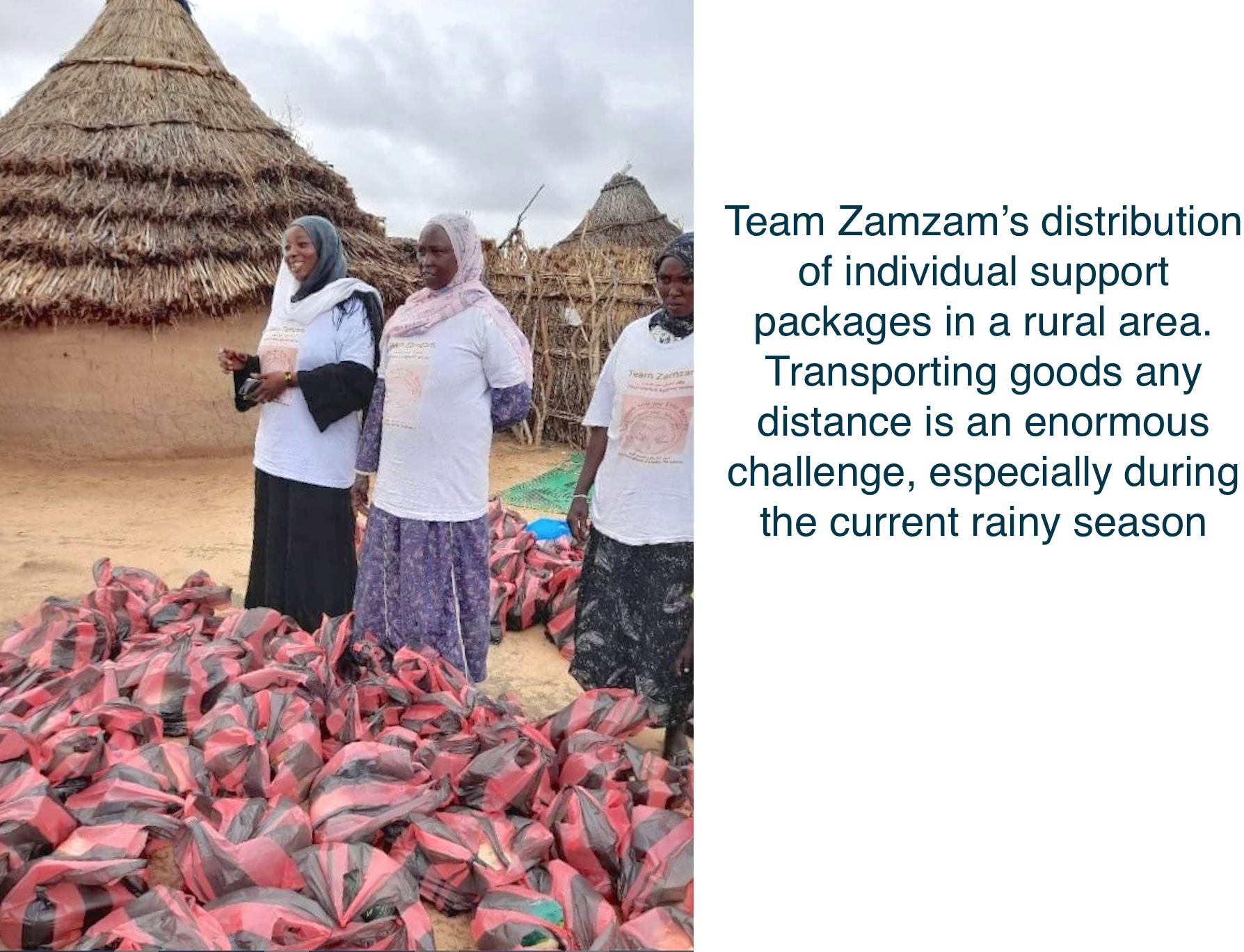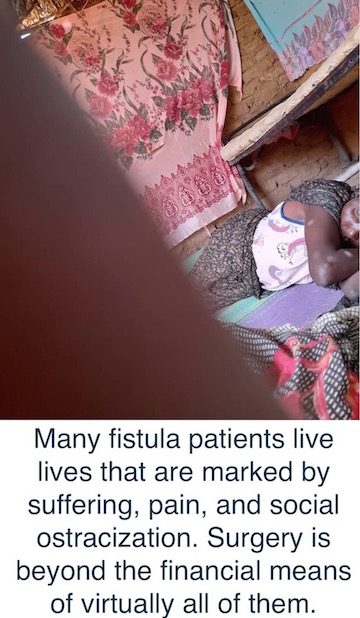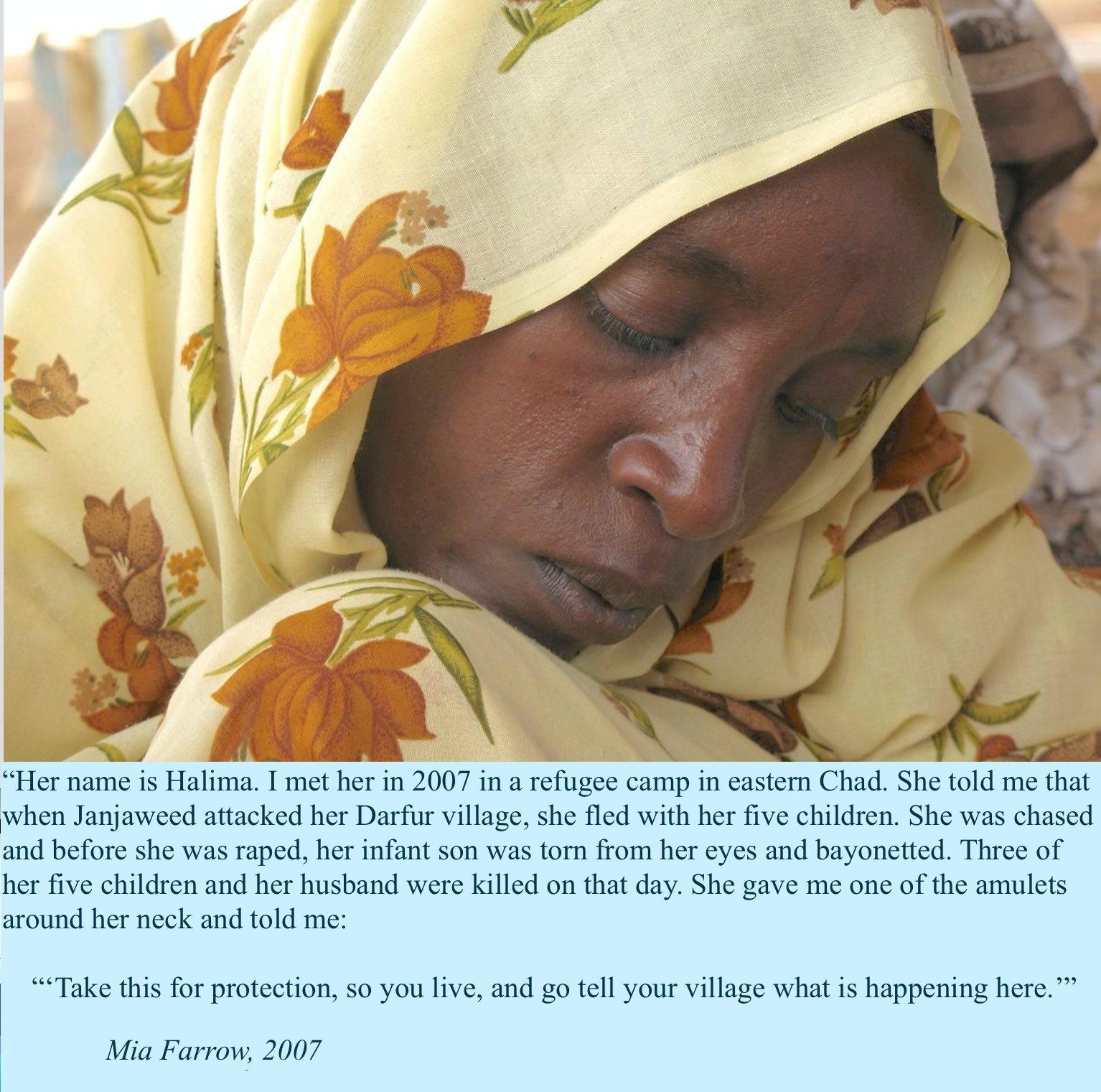ANNEX | Project Update, January 23, 2022: Responding to Sexual Violence in Darfur
Gaffar Mohammud Saeneen and Eric Reeves, Co-Chairs
Julie Darcq, Online Campaign Coordinator, Nancy Reeves, editor and financial facilitator
[1] Introductory remarks on Team’s achievements (from the coordinating counselor)
From the beginning of last year (2021) to the moment of writing this report, we as a team have gone through several cycles of challenges, as well as beautiful moments that deserve to be preserved. If they remain with us in our collective memories, we will be able to meet new challenges. And from such challenges, we learn to improve our working performance significantly and gain the additional experience on which we will continue to build.
Over the entire course of the past year and a half, we have recorded many accomplishments of which we are quite proud. Among the major achievements is the remarkable improvement in the overall psychological state of the beneficiaries from this program—both through private counseling sessions and group sessions.
During the past months, we have been able to change the lives of misery for the better for many hundreds of victims of sexual violence, as well as some 50 fistula patients who were suffering from severe pain, clinical depression, and post-trauma stress. Additionally, we have managed to create a friendly, sustainable atmosphere between the team and the residents of Zamzam, as well as its surrounding areas; this in itself contributes positively to our overall progress.
This friendly and positive atmosphere between us and the camp’s population is a cornerstone for consolidating our relationship with the camp’s population and strengthens the values of solidarity based on mutual cooperation. All these achievements and successes would not have been possible without the tireless work and individual efforts made by the cadres of Team Zamzam.
But the real praise and appreciation must go to those supporters and donors whose contributions have changed the lives of hundreds of families and thousands of people who were on the verge of psychological collapse. I conclude here by saying that despite the challenges, we are continuing our work. Because of this work, we have found many new and positive features our lives and new meaning that gives us a sense of self-worth.
[2] Insecurity and chaos in the capital of North Darfur state (El Fasher) and its suburbs.
Observers of the situation in Sudan, and Darfur in particular, have noticed a dramatic deterioration in the security situation over the past three years, and this deterioration has contributed to creating an atmosphere of fear, chaos, and panic in many places in Darfur—from the smallest villages to the outskirts of major cities, where people previously enjoying living in relative security compared to the present.
The constant reckless and destabilizing actions by violent men have created a desperate situation in most of Darfur. And since the fall of the defunct tyrannical regime [of Omar al-Bashir) violence has intensified, reaching its peak in the middle of last year when the situation worsened with mass attacks newly launched by Janjaweed militias. Their attacks focused on defenceless citizens who were working on their farms in the region southwest of El Fasher. The period from July through August also saw militia attacks on the mountainous strip in the northeast Jebel Marra area. There were many attacks simultaneously in various parts of Darfur, but the northern and western parts of Darfur experienced a disproportionate amount of the violence. The capitals of Darfur states, which used to enjoy a relative security during the era of the former regime, are today living in a state of total insecurity, chaos, and the spread of firearms carriers in public places.
These alarming developments—including theft, looting of citizens’ property at gunpoint in the streets of cities and its outskirts, armed robbery, blackmailing of citizens, random gun-firing in the streets, and sexual violence at gunpoint—have become daily occurrences. A profoundly frightening situation has become the reality of daily life for many inhabitants in El Fasher and its suburbs; they have been living in a constant fear since July of last year.
When will these destructive and frightening phenomena end? And we must ask again and again, who is responsible for the deteriorating security situation in the capitals of Darfur states?
These are the questions which are asked on a daily basis by most citizens: they are entirely fed up, but it seems no one has the courage to answer these basic questions. Many inhabitants of El Fasher point their accusing finger at the failure of the current governor, Nimer Abdel Rahman. But for his part, the governor simply accuses the central government, specifically noting the failure of Khartoum in complying with its pledges to implement the Juba Peace agreement.
The hard truth is that Darfur is heading towards a catastrophic collapse of security if the international community does not undertake urgent measures to put an end to the current chaotic situation. The problem is not only the recurring armed attacks on citizens in the peripheral villages, but the widespread presence of weapons and the multiplicity of armed groups roaming in public places and the streets in a chaotic and intimidating manner. What is confusing to many people is that no one is able to differentiate between the Juba Peace signatories (Darfuri rebel groups) and other militias.
[3] Looting of World Food Program (WFP) stores of food supplies and its impact on IDP’S
On the evening of December 28, 2021, armed men using 6 four-wheel drive vehicles attacked the warehouses of the World Food Program (WFP) in the city of El Fasher; they were able to loot foodstuffs after they clashed with the warehouse security force.
The governor (wali) of North Darfur, Nimr Muhammad Abdul Rahman, said, “The attackers clashed with forces protecting warehouses and looted quantities of food.” The Wali explained in his press briefing that dozens of citizens rushed to the site of the warehouses after hearing the sounds of clashes between the two parties, and added, “Citizens were able to enter the warehouses after the clashes stopped and the attackers withdrew, and looted quantities of food, which were not counted.”
In his press briefing, the Wali confirmed the restoration of control over the situation and the security of the stores after the arrival of police forces. The Wali pointed out that the preliminary information indicates that the attackers belong to the forces of a militia leader. He was the perpetrator of many crimes in El Fasher during the era of the former regime. His name is “Issa Al-Masih” and he and his forces of working with other militias are involved in the attack; the authorities claim to be working to reveal identity of all attackers (the Wali confirmed that there were no casualties).
An eyewitness said, “I went to visit to the children’s specialist hospital in the east of the city and was close enough to the warehouses of (WPF) to witness to the events. There was gunfire coming from all directions; there was a large force shooting in the air. Sadly, the large crowds of people rushed in a frenzy for the food, as if they did not see militiamen and did not hear the sounds of gunfire; I said to one, “Fifty-year-old women, get away from your place and go to your house, you will be hit by a stray bullet.”
According to an official at the World Food Program office in Khartoum, the warehouses contained 1,900 tons of food, and the theft of this huge amount of food comes at a time when most of the camp residents depend directly on the support of WFP; the looting of the El Fasher warehouse will have a huge impact in the coming months.
[4] The imposition of a curfew and its impact on the camp population of North Darfur
After the ransacking of the WFP stores, the security committee of North Darfur imposed a curfew in the city of El Fasher and its suburbs. Usually, a curfew comes for various reasons and exceptional circumstances requiring such action, which restricts people from leaving their homes at certain times and for specific periods. The curfew decision imposed by the authorities in El Fasher was unsuccessful, as it was widely rejected and viewed as unacceptable to the citizens. This was in part because of the intolerable escalation of the security crisis, and ominous theft of military equipment from the former UNAMID headquarters in Shangil Tobaya. Imposing a curfew at these critical times has several negatives outcomes for the citizens of the state of North Darfur who are already suffering from economic pressures following the ruin of the agricultural season in the past season.
The curfew was continued without the slightest effort to reduce the consequences of imposed measures. Many have had negative effects on the lives of citizens, including cutting people’s livelihoods. The curfew is causing heavy material losses, constitutes a violation of basic rights, and has resulted in excessive brutality by the security forces. Many citizens of El Fasher complain about such brutality of the forces and their harsh treatment—harsh treatment that takes no account of the exceptional circumstances facing many people.
There are cases of patients who cannot reach the hospital at night for fear of the security forces and their violent actions. A number of young men have been stopped and had their hair shaved in the streets by force. Additionally, many families earn a livelihood that begins at night (for example, the tea ladies). They are now all suffering from these foolish measures. People who arrive back from traveling cannot find a way to reach their homes. Sadly, many people are forced to sleep in the livestock market. One of the travellers who was affected by these measures said: “We came from Nyala about 5pm evening with the purpose of going to Khartoum, so we went down in the livestock market and spent the night running around until we fell down hungry.
The security forces often engage in all kinds of blackmail and systematic repression, moving against people under pretext of curfew enforcement to steal whatever they can from the pockets of people.
[5] The spread of Hepatitis E and its impact on pregnant women
During the first two weeks of last November (2021), about 30 pregnant women died as a result of being infected with the Hepatitis E virus in Abu Zerga areas, as well as in neighbouring villages and in Zamzam camp itself. The health situation has become deeply alarming and threatens the lives of many pregnant women. The loss of 30 women in North Darfur was followed by the loss of another 40 women in December 2021—and this is creating panic.
The spread of hepatitis E virus in this wildly rapid way requires urgent health measures from the state authorities; but with the absence of competent health institutions in Darfur and complete disregard by the state authorities, the health condition of pregnant women is getting worse. We appeal to humanitarian and health organizations to respond to these tragic incidents and respond as soon as possible.
[6] Testimonials from victims of sexual violence
 (i) “My name is Halima Abdulshaif xxx. I’m 22 years old and originally lived in the village of Kolgi village near Tawila town; but I have lived here in Zamzam since I was 8 years old. My misfortune and miseries began last year when we were working on a farm, and suddenly we were attacked by armed men carrying firearms, riding in cars and on horses and camels. My aunt with two of my cousins managed to escape immediately, but I and my mother were caught.
(i) “My name is Halima Abdulshaif xxx. I’m 22 years old and originally lived in the village of Kolgi village near Tawila town; but I have lived here in Zamzam since I was 8 years old. My misfortune and miseries began last year when we were working on a farm, and suddenly we were attacked by armed men carrying firearms, riding in cars and on horses and camels. My aunt with two of my cousins managed to escape immediately, but I and my mother were caught.
“After we were caught up, we spent a day and a half with them, enduring severe beatings and humiliating verbal insults. We were about 9 women and two men, and as the sun was about to come down, we were isolated from each other and taken individually inside tents after which the worst humiliation began. At the beginning I tried to resist but they hit me hard (with a weapon) on my back near a rib, and I lost my consciousness at that point. When I gained consciousness, my hands were still tied behind my back, my clothes were ripped apart and they were laughing. There was pain everywhere in my body, my head was dizzy, and I couldn’t breathe properly. The pain in the right rib was so severe that I could barely breathe. I thought I was going to die. My mother was only a few meters away, but her hands were also tied behind her back; she is an old woman who is already suffering from heart disease.
“I cried and begged them to let me to see my mum. One of them said they would release me if I would swear on the Quran that I would not say anything to anyone. So I swore and promised them I would not say anything. After this, they brought to my mother, and throughout the night other girls were brought back one by one. We were all shivering from the cold of night and fear. I don’t know what happened to the two men, but some people with us that the men have been killed—and somebody said she saw one of the men shot in the chest.
“After that, in the middle of the night, they left us alone in the woods and went. Some of us were almost naked, suffering from cold and hunger. We spent the night there in very bad conditions; in the morning we made our way towards El Fasher. On our way, we were met by others who were running towards El Fasher; after walking for nearly day, we eventually reached the outskirts of the city and spent the night there. The following morning, some of our neighbours and relatives came rushing from Zamzam and they brought us some food and clothes to rescue us.
“After we reached Zamzam, some good charitable people proposed to take me to the hospital with two other two girls, but we all refused the idea of going to the hospital for treatment. This was so even though I was suffering from pain in my right rib. The problem here in Darfur among the girls is that nobody wants to be exposed: when people find out that your virginity is lost, you will become a laughingstock for the entire community; it will be much harder to find a husband as well. Not only that but also people talk behind your back, and everyone runs away from you as if you have some bad disease; and that’s why everyone kept quiet.
“I know it is wrong to keep quiet while you are suffering but this was and still the case for many girls here. Keeping quiet about what happened to me for several months was the hardest thing I have ever lived with. During that time, I lost my sleep and was haunted by many horrible nightmares; I lost confidence in everything and everyone. I even lost confidence in my poor mother. I felt as though everyone was talking about me behind my back. For several months I continued to avoid everyone, and at night would be wakened by sudden nightmares.
“Finally, my long nightmares came an end after my aunt set up a secret plan to for me to meet with Sisters from Team Zamzam. At the beginning I was so worried of talking to them and suspicious of everything they said in our first meeting; but they kept coming to see me until I found myself talking and sharing my feelings and some funny stories since I was young. The sisters made me feel strong, positive about myself. I forgot thinking about what other people saying about me and my nightmares have gradually disappeared. My nightmares may have gone, but I still feeling pain on my rib sometimes. I thank the sisters for making me stronger.”
ii “My name is Zahra Abakar xxx, I’m 22 year old from Katoul village [she suffered from traumatic fistula—ER]. After suffering with pain for three years, I was fortunate last month to have my surgery and now I feel much better in terms of pain. The doctor said that was very lucky to get my surgery done as early as possible [sic]. I suffered badly from this pain for very long time but did not lose hope that one day it would end. All I wish for now is to get my life back to normal so that I can help my mother and siblings. I thank everyone who has supported me for long and many months. I thank my sisters in the Team Zamzam who have always been by my side. Their moral support was the only thing that had encouraged me not to hesitate. I wish a speedy recovery to these girls who are on the waiting for their chance.”

